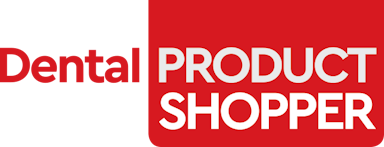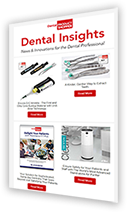A Hygienist's Guide to Preventive Dentistry

Katie Kupczyk, RDH, BSDH, BS, believes that good preventive care requires a personalized approach for every patient. Here, she shares her thoughts on caries prevention and how to best educate patients about the importance of oral health maintenance.
 Preventive dentistry is at the core of what hygienists do. During cleanings, the hygienist can evaluate a patient’s oral cavity and give personalized advice and recommendations on how to prevent decay. So, in an age when patients use fluoride with xylitol and have increased access to electric-powered toothbrushes, why is it that caries continue to run rampant?
Preventive dentistry is at the core of what hygienists do. During cleanings, the hygienist can evaluate a patient’s oral cavity and give personalized advice and recommendations on how to prevent decay. So, in an age when patients use fluoride with xylitol and have increased access to electric-powered toothbrushes, why is it that caries continue to run rampant?
“Our bodies are constantly battling to stay at homeostasis, and our mouth is no different,” said Katie Kupczyk, a hygienist practicing in Crystal Lake, IL. “Any changes in the patient’s medications, lifestyle, stress levels, diet, sleep schedule, and oral hygiene routine should be taken into consideration. By diving into the patient’s health and dental history at each appointment, the hygienist and dentist can create a personalized and evidence-based prevention plan for each patient.”
Preventing caries means asking patients highly specific questions in order to learn where their oral health needs the most support. Kupczyk recommends that hygienists change their verbiage from “Any changes to your medication?” to “There are many things that affect the health of our mouths, so please be as honest and detailed as you can, and explain what changes have occurred in any of your medications, lifestyle, overall health, stress levels, diet, and hygiene routine since we saw you last.”
The patient’s responses to each of these factors will dictate the precise treatment plan they need. “We should not assume every patient gets a standard fluoride treatment,” Kupczyk stated, describing how an individualized caries prevention plan may include a variety of materials and services: a saliva substitute, fluoride trays, varnish, toothpaste, stress management techniques, dietary counseling, smoking cessation, and last, but certainly not least, an oral hygiene routine that includes a toothbrush, toothpaste, oral rinse, and interproximal cleaners.
Take-Home Message
 Another vital caries-prevention task for the hygienist is to understand a patient’s day-to-day routine prior to recommending products. For example, a person’s occupation and professional schedule may make it hard for them to clean their teeth after lunch during the work week.
Another vital caries-prevention task for the hygienist is to understand a patient’s day-to-day routine prior to recommending products. For example, a person’s occupation and professional schedule may make it hard for them to clean their teeth after lunch during the work week.
“If I know a patient is a nurse and works the night shift, we’ll have a conversation about where brushing and flossing, eating, and managing stress fit into her schedule,” Kupczyk explained. She advises her patients to pair brushing and flossing with an already established routine, such as showering or feeding a pet, because the association often helps them remember and stay consistent. “I also tell my patients that setting a reminder on their phones can be an effective tool, and I reference YouTube for reminders on flossing and brushing techniques.”
Dentists and hygienists should acknowledge, as Kupczyk does, that starting a new routine of any kind is difficult and requires consistent effort. “Our goal as healthcare providers is to be advocates for our patients,” she stated. Supporting patients through preventive dentistry means educating them on tooth decay, gingivitis, and other common dental conditions that can develop without appropriate oral hygiene. Yet learning about these conditions is no reason for patients to preemptively fret—a hygienist's expertise and advice can help them take preventive measures into their own hands.
At-Home Care
To fight plaque buildup and bacteria, patients need to be well equipped with the appropriate toothbrush, floss, and oral rinse.
Here are some of the DPS editors' favorite products for at-home oral hygiene:
 Between the Teeth
Between the Teeth
Sunstar’s new GUM Proxabrush Go-Between cleaners are clinically designed to remove dental plaque from areas between the teeth most commonly missed by brushing. Safe and easy to use, each cleaner has a precision-manufactured brush head with soft nylon bristles, which have an antibacterial coating to help keep the brush clean and hygienic between uses.
Another alternative to regular dental floss, GUM Soft-Picks from Sunstar are ideal for the on-the-go removal of dental plaque and food particles between teeth. The flexible and tapered synthetic rubber bristles fi t easily between most teeth, removing dental plaque where gum disease often starts and toothbrushes alone cannot reach.
Toothbrushes
Featuring sophisticated pressure sensor technology that alerts users if they’re brushing too hard, Procter & Gamble's Oral-B 7000 with Bluetooth electric toothbrush has 6 high-performance brushing modes: Daily Clean, Deep Clean, Whitening, Massage, Sensitive, and Tongue Cleaning. Its specially designed seals and gaskets keep the toothbrush water tolerant to 500 millibars of pressure.
By offering 9 unique brushing options and advanced brush head technology, the Philips Sonicare FlexCare Platinum toothbrush delivers exceptional plaque removal and improved gum health. Powerful sonic vibrations whip up toothpaste into plaque-fighting bubbles, driving them deep between teeth and along the gumline.
Featuring an advanced multi-action bristle design, the Colgate 360 Advanced Optic White manual toothbrush has spiral polishing bristles to remove teeth stains, and an innovative cheek and tongue cleaner designed to remove bacteria from teeth, tongues, cheeks, and gums.
Oral Rinses
 The 2 active ingredients in Philips Sonicare BreathRx oral rinse are Zytex and cetylpyridinium chloride (CPC). Zytex, a combination of zinc and essential oils, neutralizes volatile sulfur compounds, while CPC kills bacteria and reduces plaque and gingivitis. Some other BreathRX products include antibacterial tongue spray, whitening toothpaste, and gentle tongue cleaner. PreviDent from Colgate Professional contains 900-ppm fluoride, providing 4 times the fluoride concentration of an over-the-counter rinse, and is proven to provide up to a 55% reduction in caries when used once a week. Available in a cool mint flavor, this rinse is ideal for patients who have been recommended a rinse by their dentist, or who have difficulty brushing.
The 2 active ingredients in Philips Sonicare BreathRx oral rinse are Zytex and cetylpyridinium chloride (CPC). Zytex, a combination of zinc and essential oils, neutralizes volatile sulfur compounds, while CPC kills bacteria and reduces plaque and gingivitis. Some other BreathRX products include antibacterial tongue spray, whitening toothpaste, and gentle tongue cleaner. PreviDent from Colgate Professional contains 900-ppm fluoride, providing 4 times the fluoride concentration of an over-the-counter rinse, and is proven to provide up to a 55% reduction in caries when used once a week. Available in a cool mint flavor, this rinse is ideal for patients who have been recommended a rinse by their dentist, or who have difficulty brushing.
Recommended for twice-daily use, Sunstar’s GUM PerioShield contains the proprietary active ingredient delmopinol 0.2%, which facilitates plaque removal while creating a protective shield around teeth and gingiva to continuously repel and slow the formation of new plaque and pathogenic bacteria. The rinse helps to stop gingivitis, prevent relapse after chlorhexidine treatment, and provide long-term at-home maintenance.
Click here to read Katie Kupczyk's Blog, 5 Tools to Combat Caries.



